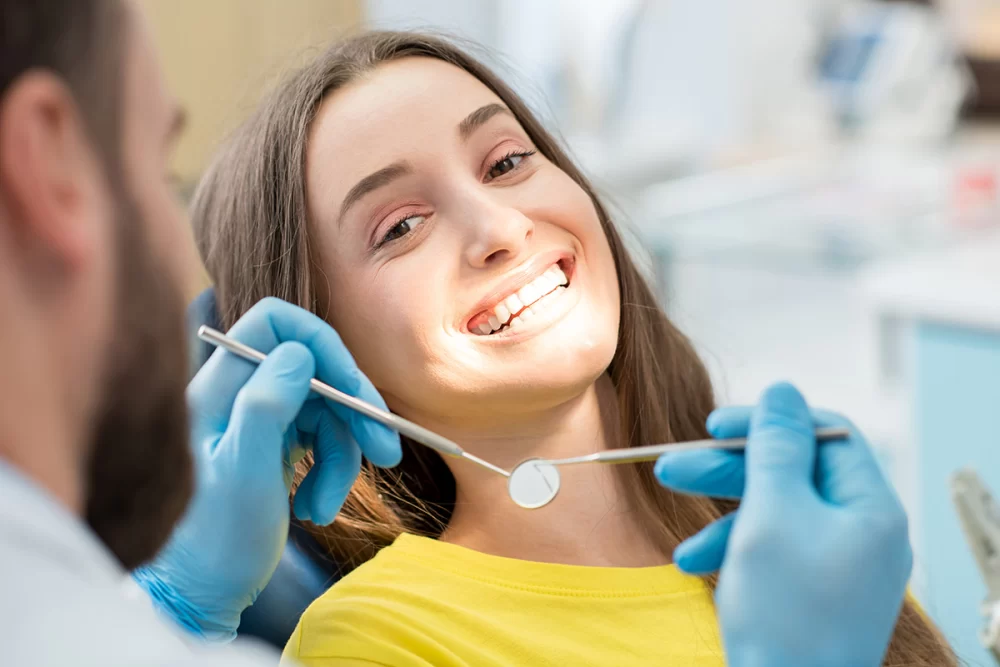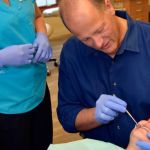
How to Transition from Pediatric to Adult Dental Care
Making the transition from pediatric to adult dental care can be a bit daunting, not just for teenagers but also for parents. It’s a shift from a familiar environment to something new, and it can feel like a major milestone. I remember when my son, Alex, was about to make that switch. Having gone to a pediatric dentist his whole life, I wasn’t sure what to expect from the world of adult dental care. But after going through it, I can say with confidence that the process doesn’t have to be stressful if you take the right steps.
1. When Should You Make the Transition?
One of the most common questions that parents and teens ask is when exactly should a child transition to adult dental care? For most individuals, the switch happens around the age of 18, but this can vary depending on factors like the overall development of the teeth and the individual’s specific dental needs.
For Alex, we started considering a transition when he was 17. He had a few adult teeth coming in, and his pediatric dentist suggested that he might be ready to see an adult dentist soon. It’s not just about age—it’s also about dental maturity. If your child has had braces or is experiencing issues with their wisdom teeth, it may be time for the transition earlier. A good pediatric dentist will provide guidance on the best time to make the switch.
2. Understanding the Differences Between Pediatric and Adult Dental Care
When transitioning from a pediatric dentist to an adult dentist, it’s important to understand the differences in the approach to dental care. Pediatric dentists are specialists who are trained to work with children, from toddlers to teenagers. They know how to manage the unique challenges that come with treating younger patients, including handling dental anxiety and using kid-friendly equipment.
On the other hand, adult dentists focus on treating the full range of adult dental needs. This includes preventive care, cosmetic dentistry, complex restorative treatments, and more. I learned that adult dentists are also more focused on ongoing care for the adult years, such as managing gum disease or preparing for potential tooth loss due to aging. The dental office environment might also feel more formal, with a focus on maintaining oral health as patients age.
3. Finding the Right Adult Dentist
One of the most crucial steps in making the transition is finding an adult dentist that fits your or your teen’s needs. This can be a daunting task—after all, you want someone who can build a long-term relationship with your child as they grow into adulthood.
When looking for an adult dentist, consider the following:
- Experience with young adults: Not all adult dentists have experience treating younger patients. It’s important to find someone who has worked with patients transitioning out of pediatric care and who understands the unique concerns of young adults.
- Comfort level: Since dental visits can sometimes be intimidating, especially for someone who’s never been to an adult office before, finding a dentist that makes you or your child feel comfortable is essential.
- Convenience and location: Make sure the office is conveniently located and offers office hours that work with your schedule. Convenience is key, especially as you start this new phase of dental care.
- Recommendations: Ask your pediatric dentist or friends and family for recommendations. Finding a dentist with a great reputation can help ease the transition.
For Alex, we were fortunate that his pediatric dentist referred us to a great adult dentist who specialized in young adults. That recommendation made the entire process smoother, as we knew the dentist had experience with teenagers making the switch to adult care.
4. The First Adult Dental Visit
The first visit to an adult dentist can feel a little strange—after all, your teen is used to seeing someone who specializes in treating children. I remember Alex’s first appointment. He was a bit nervous, as he wasn’t sure what to expect, but the adult dentist made sure to walk him through everything. The office was quiet, and the staff treated him like an adult, which made him feel empowered.
During the first visit, the adult dentist will likely take a detailed medical history, perform a thorough cleaning, and assess the overall health of the teeth and gums. They may also take X-rays if necessary. This is the time to discuss any concerns you have, such as wisdom teeth, braces, or the potential need for orthodontic treatments down the line.
One important thing to note is that many adult dentists focus heavily on preventative care. They might talk about gum health, the risks of tooth decay in adulthood, and the importance of regular check-ups. The goal is to prevent issues before they start, so expect the focus to shift toward maintaining long-term oral health.
5. Maintaining Regular Visits
Once the transition is complete, it’s important to maintain regular visits to the adult dentist. The schedule may be different from the pediatric care schedule, which often involves more frequent visits. Typically, adult dental care involves visits every six months for cleanings and check-ups, but this can vary depending on your dental health needs.
For Alex, we made sure to stick with the regular visits after the first one. It helped keep his teeth healthy, and the dentist was able to monitor the progress of his wisdom teeth as they started to emerge. By staying on top of his dental care, we were able to catch small issues before they became big problems.
6. Understanding the Financial Aspect of the Transition
One thing that often catches people off guard when transitioning to adult dental care is the cost. Pediatric dental care is often more affordable, especially if your child is covered under your insurance plan. However, as your child transitions to adult care, the insurance coverage may change, and the costs of treatments may increase.
We noticed that Alex’s dental insurance coverage shifted when he turned 18, and we had to make sure we understood what was covered and what wasn’t. Some insurance plans cover preventive care but may require a higher co-pay for procedures like fillings, crowns, or orthodontic care. It’s a good idea to call your insurance provider to confirm what services are covered before scheduling appointments.
7. Staying Informed About Adult Dental Health Needs
As young adults enter this new phase of dental care, it’s important for them to learn how to take responsibility for their own oral health. This means brushing and flossing regularly, being mindful of what they eat, and understanding the long-term importance of oral health. It can be a learning curve for many teens, but with the right guidance from their new adult dentist, they can become confident in managing their dental care.
For Alex, this meant learning more about the importance of flossing and the role of fluoride in maintaining healthy gums and teeth. The adult dentist took the time to explain these things in detail, which helped him take ownership of his dental hygiene routine.
8. Preparing for Future Dental Needs
As your teen transitions to adult dental care, it’s important to start thinking ahead. While pediatric care is often focused on prevention and early treatments, adult care may require more complex procedures down the line. Make sure to discuss the future of their dental health with the dentist, including things like wisdom teeth removal, orthodontic needs, and the potential for restorative work as they age.
In the case of Alex, his adult dentist suggested keeping an eye on his wisdom teeth, which were coming in a bit later than expected. This foresight helped us prepare for future visits and gave us a plan in place in case any issues arose.
Transitioning from pediatric to adult dental care can be an exciting new chapter, one that comes with a bit of uncertainty but a lot of opportunity to learn. By finding the right dentist, understanding the differences between pediatric and adult care, and preparing for the financial and practical aspects, you can make the process smooth and positive for your teen as they step into adulthood.







 Brinton Family Dentistry4.0 (469 review)
Brinton Family Dentistry4.0 (469 review) Ryan L. Lindner, DDS0.0 (0 review)
Ryan L. Lindner, DDS0.0 (0 review) Summit Fair Dental Care4.0 (792 review)
Summit Fair Dental Care4.0 (792 review) Millennium Dental Arts5.0 (235 review)
Millennium Dental Arts5.0 (235 review) Associated Orthodontists - Joliet4.0 (132 review)
Associated Orthodontists - Joliet4.0 (132 review) Kevin B. Sands, DDS5.0 (168 review)
Kevin B. Sands, DDS5.0 (168 review) The Importance of Oral Health Education During Pregnancy for a Healthy Pregnancy
The Importance of Oral Health Education During Pregnancy for a Healthy Pregnancy Best Tips for Brushing Your Teeth Properly for Healthy Gums: Essential Techniques for Oral Health
Best Tips for Brushing Your Teeth Properly for Healthy Gums: Essential Techniques for Oral Health Why Skipping Dental Checkups Can Lead to Bigger Oral Health Problems
Why Skipping Dental Checkups Can Lead to Bigger Oral Health Problems Advantages of Porcelain Dental Restorations
Advantages of Porcelain Dental Restorations How Can Diabetes Cause Tooth and Gum Problems? Preventing and Managing Oral Health Issues
How Can Diabetes Cause Tooth and Gum Problems? Preventing and Managing Oral Health Issues Healthy Habits for Promoting Good Oral Health and Hygiene: Tips for a Healthy Smile
Healthy Habits for Promoting Good Oral Health and Hygiene: Tips for a Healthy Smile